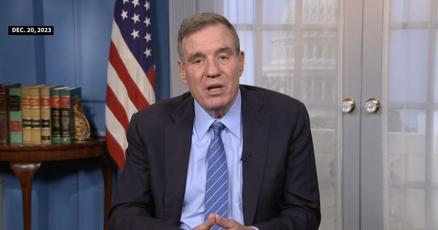You may associate the term “artificial intelligence” with science fiction movies, but the government is already contemplating the potential and challenges that AI may bring in the future. Senator Mike Rounds, a Republican from South Dakota, emphasized the need for global leadership in this arena, stating, “We have the opportunity to take the lead right now.”
Lawmakers are cautious about repeating past mistakes, such as the unregulated growth of social media platforms. Senator Mark Warner from Virginia described AI as an “enormously challenging” issue. He suggested that while comprehensive legislation may not be imminent, addressing AI concerns incrementally could be more feasible. Despite claims from major tech companies that they are open to regulation, challenges arise when translating intentions into concrete laws.
Looking ahead to 2024, politicians are increasingly alarmed by the potential misuse of AI. Senate Democrat Leader Chuck Schumer raised concerns about the spread of deceptive content created by AI, including videos used in political campaigns. Warner stressed the importance of prioritizing national security alongside electoral integrity and financial stability. As the chair of the Intelligence Committee, he is spearheading bipartisan efforts to regulate the ethical use of AI.
Schumer has taken proactive steps to educate lawmakers on AI through a series of conferences. With the goal of introducing regulations in January, Warner aims to equip legislators with a deeper understanding of AI’s implications. Beyond the United States, global leaders like Pope Francis and the European Union are also advocating for responsible AI development and usage through international agreements and comprehensive laws.






